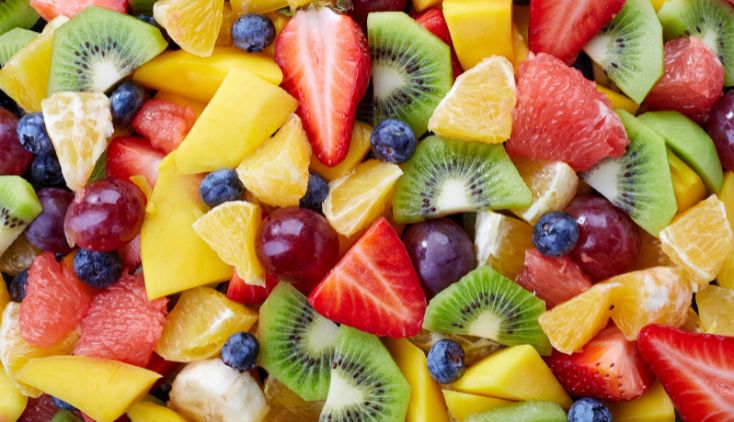How to Manage Diabetes
Managing diabetes involves more than just avoiding sugar. It’s a lifelong commitment to healthy eating, physical activity, proper medication, and regular monitoring. The good news is that with the right approach, people with diabetes can lead full and active lives. This article outlines a practical guide to managing diabetes, starting with the most important: what you eat.
Healthy Foods for Diabetes Management
1. Whole Grains and High-Fiber Foods
Whole grains like brown rice, oats, quinoa and whole wheat bread are better for blood sugar control than refined carbohydrates. They digest more slowly, preventing sudden spikes in glucose levels.
2. Vegetables
Non-starchy vegetables such as spinach, kale, broccoli, bell peppers and zucchini are low in carbohydrates and calories. They can be eaten freely and provide essential vitamins and minerals.
3. Fruits in Moderation
Fruits contain natural sugars, but they also provide fiber and antioxidants. Apples, oranges, berries and pears are good choices, especially when eaten in moderation and paired with a source of protein or fat to slow sugar absorption.
4. Lean Proteins
Include sources like skinless chicken, turkey, tofu, beans, legumes, eggs and fish. Fatty fish such as salmon or sardines are particularly good because they contain omega-3 fatty acids that support heart health.
5. Healthy Fats
Avocados, olive oil, nuts and seeds can improve cholesterol levels and keep you feeling full. They’re best used in place of saturated or trans fats found in fried and processed foods.
Foods to limit include: sugary drinks, sweets, white bread, fried foods, fast food and heavily processed snacks. These can lead to blood sugar spikes and contribute to weight gain and insulin resistance.
Medications and Insulin Therapy
Type 1 Diabetes
People with type 1 diabetes need insulin daily because their bodies can’t produce it. Insulin is given either through injections or via an insulin pump, which delivers small doses throughout the day.
Type 2 Diabetes
Many people with type 2 diabetes begin with lifestyle changes and oral medications like metformin, which helps control glucose levels by lowering sugar production in the liver. If oral medications aren’t enough, other drugs or insulin may be added.
Non-Insulin Injectables
These medications help improve how the body uses insulin or slow the rate at which sugar enters the bloodstream. Your doctor may prescribe these depending on your specific needs and medical history.
Physical Activity and Exercise
Exercise is one of the most effective tools for managing blood sugar levels. It improves the body’s ability to use insulin and lowers glucose naturally. In addition, it helps control weight, lowers blood pressure and reduces the risk of heart disease.
Recommended Activity Levels
Aim for at least 150 minutes of moderate-intensity aerobic activity each week. This can include brisk walking, cycling, swimming or dancing. Adding resistance exercises like weight lifting or bodyweight workouts two to three times per week to build muscle will also help.
Safety tip: Always check your blood sugar before and after exercising to avoid lows (hypoglycemia), especially if you’re on insulin or other glucose-lowering medications.
Monitoring Blood Sugar
Knowing your blood sugar levels helps you understand how your body responds to food, exercise, stress and medication.
Self-Monitoring Tools
Most people use a blood glucose meter or continuous glucose monitor (CGM) to track their levels throughout the day. Your doctor will recommend how often you should check based on your treatment plan.
Target Ranges
While individual goals may vary, many doctors suggest a fasting blood sugar level between 80–130 mg/dL and a post-meal level under 180 mg/dL. Keeping within these ranges helps prevent complications over time.
Lifestyle Tips for Better Control
- Manage stress. High stress levels can raise blood sugar. Mindfulness, deep breathing, yoga or talking to a therapist can help reduce anxiety.
- Get enough sleep. Aim for 7–9 hours of quality sleep per night. Poor sleep can affect insulin sensitivity.
- Stay hydrated. Water helps the kidneys flush out excess sugar through urine and supports overall metabolism.
- Limit alcohol and avoid smoking. Alcohol can cause blood sugar to drop suddenly, while smoking increases the risk of heart disease, nerve damage and other complications.
Managing diabetes doesn’t mean you have to give up everything you enjoy. It means making informed choices, building healthy habits and staying consistent. With the right food, proper medication, regular exercise and close monitoring, you can keep your blood sugar levels in check and lead a fulfilling life. Always consult with your healthcare provider to develop a personalized plan that meets your specific needs.
